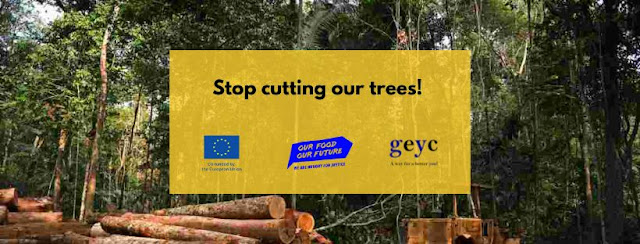Deforestation is one of the biggest ecological problem of the planet. It's the removal or clearing of trees and forest which is converted into use for human, like for agricultural use, making houses, for commercial purpose and other development.
About 31% of earth’s land surface is covered by forest. Deforestation is more extreme in the tropical and subtropical forests. These areas are converted into economical uses. The total area of tropical rain forest on Earth is about 16 million square kilometres, but because of deforestation, only 6.2 square kilometres are left. According to the Global Forest Resources Assessment 2020, the global rate of net forest loss in 2010-2020 was 7 million hectares per year.
The primary reason for deforestation is agricultural. Indeed, agriculture leads to around 80% of the deforestation. For the survival of the livelihood, the farmers cut trees off the forest and use that land for the purpose of cultivation. Due to the increasing population, the demand of food product is also increasing which create more deforestation. Furthermore, the growing population is also responsible for the cutting off trees because of the city’s expansion.
In parallel, the demand for paper, match-sticks, furniture, etc. are also increasing. Therefore, the wood-
Another reason is forest fire. Thousands of trees are lost every year because of the hot temperature of that place and milder winter. On many places, the fire is caused because of human’s irresponsibilities.
The effects of deforestation on our planet is a very big deal and very important. Forest are the lungs of our planet. Trees take carbon dioxide and release oxygen, which is responsible for our living. They also provide shed to soil because of which soil remain moist, and they release water vapours, that’s why climate remains humid. However, due to the process of deforestation the climate becomes drier and hotter which make ecology difficult that leads to climate change. Also, this factor is mainly responsible for the forest fire.
This article is part of the Project Our Food Our Future, written by Melanie-Dior Kane.
Sources:




.png)
.png)
